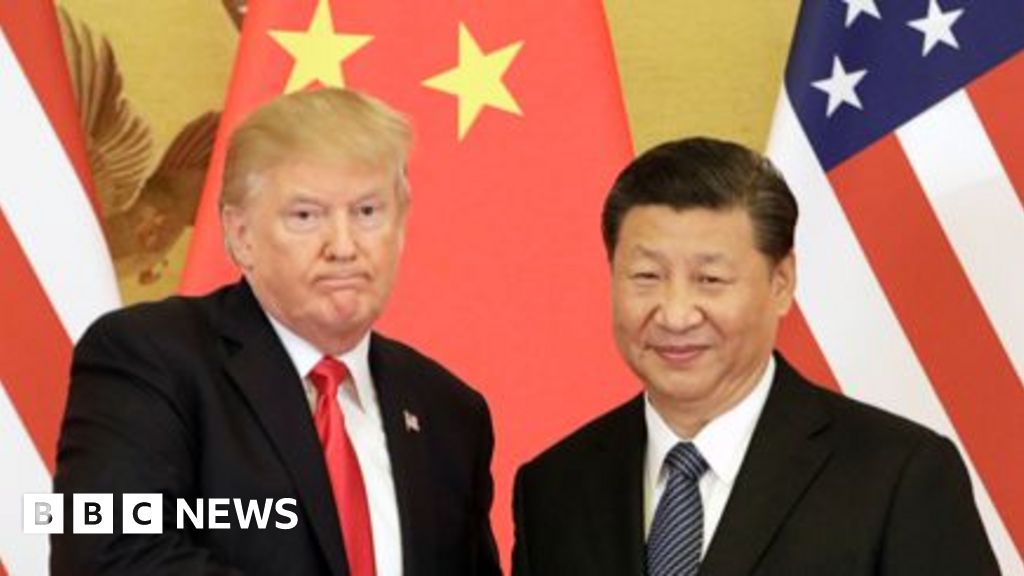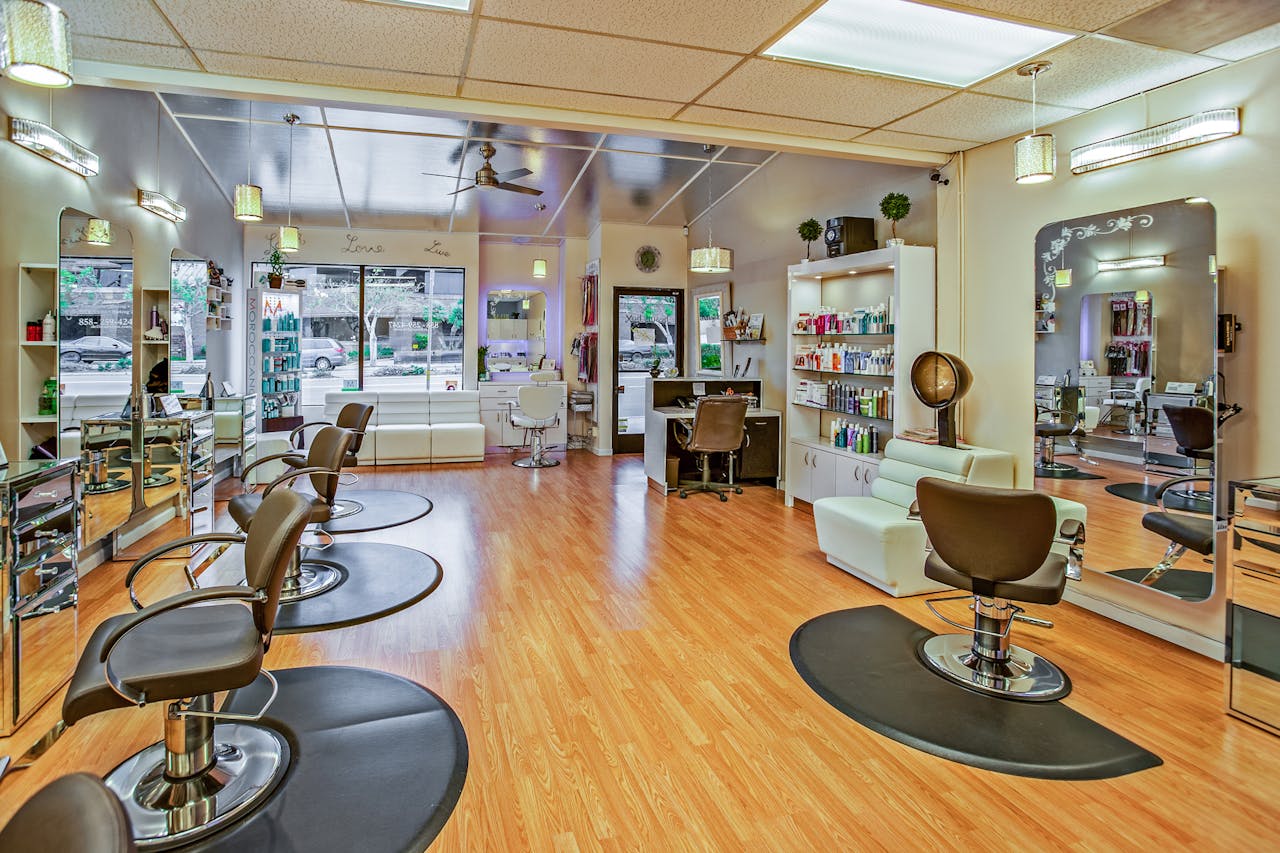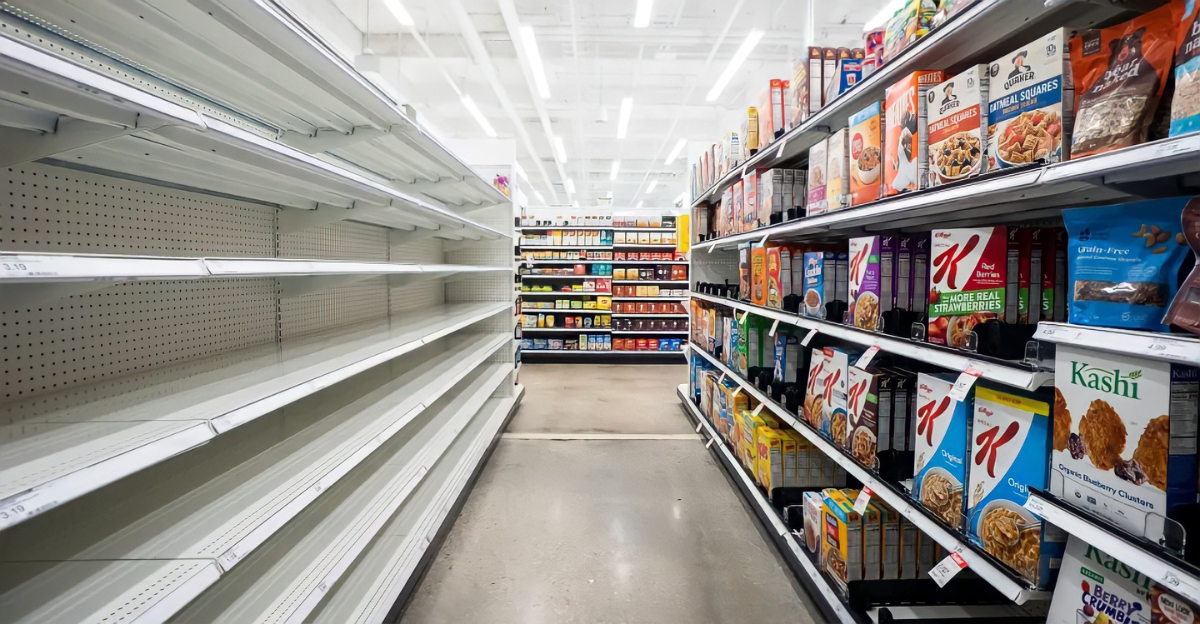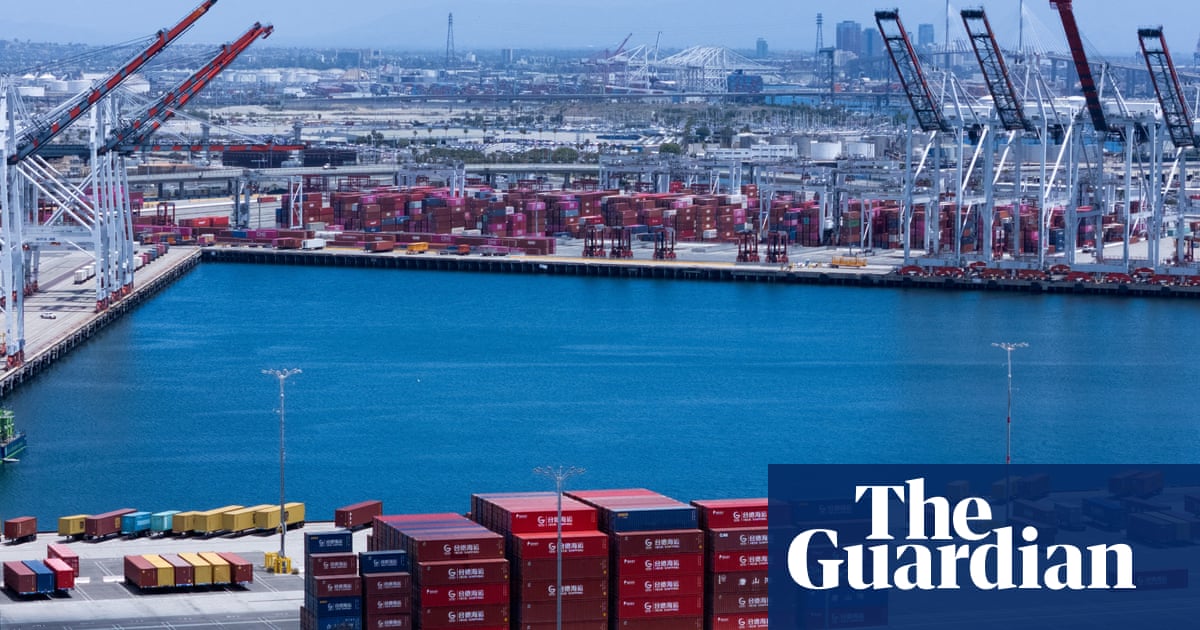
https://www.bbc.com/news/articles/ckg1jr18z4ko
https://www.msn.com/en-us/news/world/china-has-found-trump-s-pain-point-rare-earths/ar-AA1OCggQ


https://www.bbc.com/news/articles/ckg1jr18z4ko
https://www.msn.com/en-us/news/world/china-has-found-trump-s-pain-point-rare-earths/ar-AA1OCggQ
President Donald Trump’s threat to impose an additional 100% tariff on imports from China sparked a massive cryptocurrency sell-off late Friday that exposed risky leverage in the space.
Digital currencies bitcoin, ether and solana were among the most affected cryptocurrencies, bringing total liquidations to $18.28 billion as of 3:47 p.m. ET, according to data analysis platform CoinGlass. The losses for cryptocurrencies come amid a broad sell-off, as the Nasdaq and S&P 500 on Friday saw their steepest declines in six months.
In the past 24 hours, roughly $5 billion of bitcoin has been liquidated, along with about $4 billion of ether and about $2 billion of solana, according to CoinGlass.
It’s the “largest liquidation event in crypto history,” CoinGlass said in a post on X.
Bitcoin is down almost 10% in the last five days and was trading at $111.616.20 as of 3:45 p.m. ET, a jump from when it dropped to $103,000 at 5:15 p.m. ET on Friday.
On Friday, ether was priced at $4,365.63 and then sunk to $3,742.88 — a 14.2% decline.
Solana was priced at $223.10 on Friday and has fallen to $178.72, as of 3:45 p.m. ET — a nearly 20% plunge.
Crypto has made major gains since Trump took office this year, in large part because of the president’s turnaround from dismissing bitcoin as “based on thin air” to addressing crypto fans at conventions, launching his own meme coin and promising a strategic crypto reserve.
And Trump recently issued an executive order allowing digital assets like crypto to be included in 401(k) plans, causing bitcoin to soar to a record high of $124,000 last week.
Despite ongoing trade talks between Washington and Beijing, trade tensions re-escalated Thursday after China ramped up export restrictions on critical rare earth minerals.

https://www.cnn.com/2025/10/11/business/trump-tariffs-crypto-selloff


Diann Valentine, 55, founder of Slayyy Hair, first felt the impact of tariffs when a 145% levy on Chinese imports hit, resulting in a $300,000 bill to clear 26,000 units of braiding hair at the Los Angeles port in May. Since then, she has raised the prices of her braiding hair and drawstring ponytail extensions by 20%. Valentine was also forced to lay off four employees and now works 16-hour days to keep her two Glow+Flow beauty supply stores in Inglewood and Hawthorne, California, running smoothly.
“To lose that kind of money at this stage has been devastating,” Valentine said.
“We’re being impacted at every level,” said Dajiah Blackshear-Calloway, 34, a salon owner based in Smyrna, Georgia. “I’m either having to eat that cost or pass that expense along to my clients, which affects their budgets and their pockets as well.”
Blackshear-Calloway’s salon, staffed by two stylists, offers a range of services from $50 natural hairstyles to $745 tape-in weave extensions. Her most popular services include $254 sew-in weaves and $125 quick weaves, where extensions are glued onto a stocking cap.
However, tariffs have driven up the cost of a package of hair imported from Vietnam from $190 in May to $290, while a bottle of hair glue from China jumped from $8 to $14.99 at her local supply store. To avoid passing these costs on to clients, Blackshear-Calloway now asks them to bring their own hair, making a quick weave $140 without hair, compared to $400 with hair provided.
Diann Valentine, 55, founder of Slayyy Hair, first felt the impact of tariffs when a 145% levy on Chinese imports hit, resulting in a $300,000 bill to clear 26,000 units of braiding hair at the Los Angeles port in May. Since then, she has raised the prices of her braiding hair and drawstring ponytail extensions by 20%. Valentine was also forced to lay off four employees and now works 16-hour days to keep her two Glow+Flow beauty supply stores in Inglewood and Hawthorne, California, running smoothly.
“To lose that kind of money at this stage has been devastating,” Valentine said.
Tariffs are hitting Black business owners particularly hard, including many salon owners. Andre Perry, a senior fellow at the Brookings Institution, notes that the wealth gap leaves Black entrepreneurs, especially those in low-margin industries like consumer goods or haircare services, in financially vulnerable positions, with tariffs further eroding their profits.
“Many Black entrepreneurs started off with less wealth,” Perry said.
Black businesses have endured for generations through innovation and resilience, and it will take that same spirit to navigate the challenges Americans now face due to Trump’s tariffs. Industry experts have been offering tips for small business owners affected by the tariffs, including communicating openly with customers, reassessing supply chains, streamlining operations to address inefficiencies, consulting a financial advisor, and exploring business credit lines.

For years, “retail apocalypse” headlines have cried wolf. Many blamed Amazon, others warned of overbuilt malls, but most claims fizzled. What’s happening now is different. Target just slashed its 2025 outlook after a brutal quarter, projecting a “low-single digit decline” in annual sales. Walmart’s CEO Doug McMillon has gone straight to President Trump with warnings that store shelves may soon run dry.
These aren’t fringe forecasts, they’re direct signals from America’s largest retailers. For the first time, retail’s titans are sounding the same alarm. The collapse isn’t theoretical anymore. Behind the aisles, a perfect storm of tariffs, supply chain chaos, and consumer panic is brewing.

President Donald Trump was up late and throwing jabs Monday night into Tuesday morning, threatening to slap California Gov. Gavin Newsom with “large scale fines” over transgender athletes.
Posting to his Truth Social account around 1 a.m. ET, Trump attacked the governor with the moniker “Newscum” as he ranted about a “Biological Male” competing in the California state finals track meet over the weekend.

Trump was up posting after midnight and claimed that his tariffs are causing the U.S. economy to boom.
However, current economic data and expert analysis contradict this assertion. According to the OECD (Organization for Economic Co-operation and Development), U.S. economic growth is projected to slow to 1.6% in 2025, down from 2024, largely due to the uncertainty and higher costs brought on by Trump’s aggressive tariff policies. These tariffs have raised the effective U.S. import rate to 15.4%, the highest level since 1938, contributing to rising inflation—expected to hit 4% by the end of the year—and declining exports, according to Business Insider.
While tariffs have reduced imports and modestly narrowed the trade deficit, the broader impact has been negative.
https://meidasnews.com/news/trump-claims-the-economy-is-booming-because-of-his-tariff-policy
Donald Trump’s tariff policy was derailed by a libertarian public interest law firm that has received money from some of his richest backers. The Liberty Justice Center filed a lawsuit against the US president’s “reciprocal” tariffs on behalf of five small businesses, which it said were harmed by the policy.
…
For its lawsuit against Trump’s tariffs, the Liberty Justice Center gathered five small businesses, including a wine company and a fish gear and apparel retailer, and argued that Trump overreached his executive authority and needed Congress’s approval to pass such broad tariffs.

https://www.theguardian.com/us-news/2025/may/29/trump-tariffs-liberty-justice-center
A federal court held the very first hearing on President Donald Trump’s wide-ranging, so-called Liberation Day tariffs on Tuesday, offering the earliest window into whether those tariffs — and potentially all of the shifting tariffs Trump has imposed since he retook office — will be struck down. The case is V.O.S. Selections v. Trump.
It is unclear how the three-judge panel that heard the case will rule, but it appears somewhat more likely than not that they will rule that the tariffs are unlawful. All three of the judges, who sit on the US Court of International Trade, appeared troubled by the Trump administration’s claim that the judiciary may not review the legality of the tariffs at all. But Jeffrey Schwab, the lawyer representing several small businesses challenging the tariffs, also faced an array of skeptical questions.

https://www.vox.com/economy/412966/supreme-court-tariffs-donald-trump-trade-vos-selections